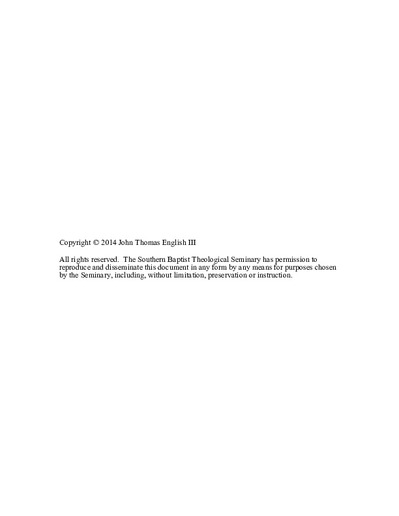| dc.description.abstract | One of the most important distinguishing marks of the Christian faith is that it is a revealed religion. The Christian faith professes that God has graciously and with authority revealed himself to his creatures. Therefore, the doctrine of Scripture, specifically biblical, is an issue of central importance in any theological formulation that is distinctly Christian. Despite the centrality of biblical authority in the system of Christian faith, there is perhaps no other doctrine under greater reproach.
In light of the increased criticism of the doctrine of Scripture, Christians have adopted various theologies of revelation in order to explain what the biblical text is, how it relates to God, and how it functions authoritatively. And yet many of these proposals fail to take advantage of the resources provided by the communicative categories of the rich Christian trinitarian tradition. Specifically, very few evangelical proposals related to biblical authority consider how the specific modes of subsistence related God the Father (unbegottenenss), God the Son (eternal begottenenss), and God the Holy Spirit (procession) contribute to a Christian understanding of divine authorship.
This dissertation is an exercise in dogmatic and exegetical theology that gives an account of the relationship between biblical authority and trinitarian communicative activity. This dissertation will argue that the Bible is authoritative because it has God the Father as its source, God the Son as the content and mediator of the Father's speech, and God the Spirit as the efficacious power who speaks the Word that he receives from the
Father and Son. Therefore, Scripture is authoritative because God the Father, God the Son, and God the Spirit all speak, with one voice, an authoritative Word. | en_US |

